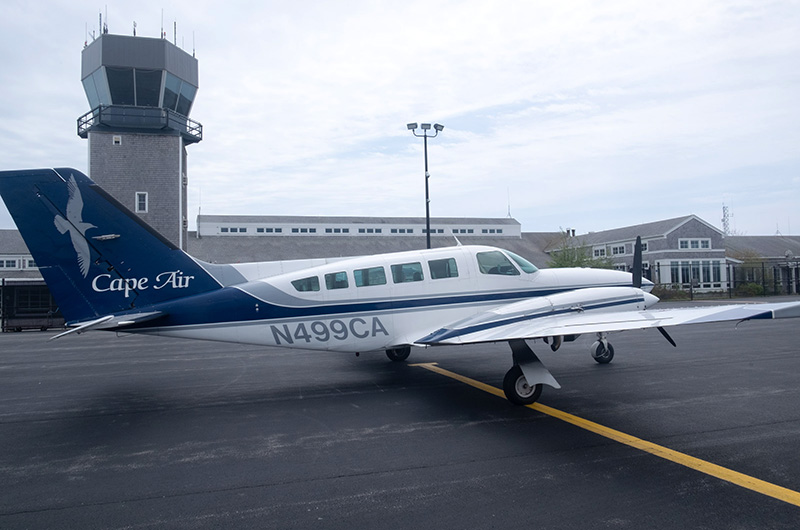After a precipitous drop in air traffic since the beginning of the pandemic, some of the Martha’s Vineyard Airport’s largest commercial carriers are now delaying or curtailing their summer service to the Island.
Cape Air has limited its flight schedule over the duration of the outbreak, and JetBlue, which normally arrives on the Vineyard by May 15 and offers service from Boston, New York and Washington, is not going to be arriving until at least July 1, according to airport officials. And that schedule will be severely curtailed.

“It’s probably half of what they had last year,” said assistant airport director Geoff Freeman this week. “We will see a drastic reduction for May and June without them being here.”
At an airport commission meeting last Thursday, chairman Bob Rosenbaum said it seemed unusual that JetBlue, one of the airports’ largest carriers, had delayed its service by six weeks. Mr. Freeman said because of the severity of the Covid epidemic in the Northeast, the airline had temporarily ceased operations throughout much of the region, including Manchester and Providence.
JetBlue has also delayed summer service to Nantucket.
“The region took a big hit,” Mr. Freeman said.
Other commercial summer carriers, like American Airlines and Delta, are still planning to come to the Island in mid-to-late June with schedules largely unchanged, and Cape Air starts service from New York this week. But if the spring is any indication, the number of passengers coming onto on the tarmac is expected to be small.
In April 2019, Cape Air, the only year-round commercial airline that services the Vineyard, boarded about 16 passengers per day on the Island. This April, the airline boarded 26 passengers — over the course of the entire month.
That’s a 447-passenger decline, equating to a 94.5 per cent drop in commercial passenger traffic revenues, according to Mr. Freeman.
At an airport commission meeting last Thursday, director Cindi Martin said the decline in general aviation had been less dramatic than commercial flights during April. General aviation includes private jets and non-commercial fliers coming through the Island.
“General aviation did not slow the way commercial aviation did,” Ms. Martin said.
In a followup call this week, Mr. Freeman estimated that general aviation landings in April 2020 declined in the 50 per cent range from the year prior. Overall, the airport saw a 54 per cent drop in air traffic compared to last April. In 2019, 1,026 planes communicated with the airport controllers during the month; in 2020, the number was 477.
Mr. Freeman said the airport would not be hiring its usual cohort of summer staff, and those that are hired would be done in a delayed structure.
“Our summer hires will be kept to a minimum,” Mr. Freeman said at the meeting.
The airport earns revenues from a variety of places, including automobile parking, enplanements (the number of people who board planes), fuel sales, rent in the business park and landing fees, among other things.
At the meeting last Thursday, commissioner Richard Knabel said the airport was in strong financial shape despite the operational declines. He said finances remained in the black through the first 11 months of the FY 2020 budget, and that only two tenants had decided to defer rent payments in the business park.
The airport offered tenants a complicated rent deferment option due to the pandemic at their meeting in April.
“We are operating very well,” Mr. Knabel said. “And we are the only transportation agency on the Island that actually is.”







Comments (1)
Comments
Comment policy »